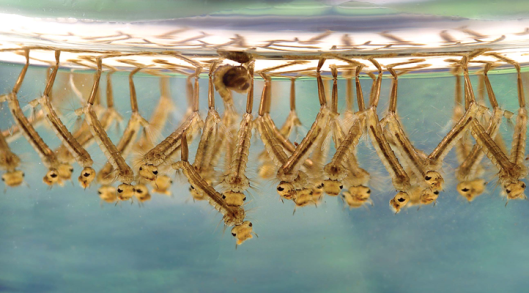 The two most important things the public can do to protect themselves from the Zika virus or other mosquito-borne illnesses are protect their bodies from mosquito bites and reduce mosquito breeding grounds around their homes, neighborhoods, and businesses.
The two most important things the public can do to protect themselves from the Zika virus or other mosquito-borne illnesses are protect their bodies from mosquito bites and reduce mosquito breeding grounds around their homes, neighborhoods, and businesses.
“Mosquito season has started in Tennessee, and with it comes the potential for mosquito-borne illness,” said Hamilton County Mayor Jim Coppinger. “We are urging residents and business owners to check their yards and establishments for any items holding water where mosquitoes lay eggs and multiply. A mosquito can lay her eggs in something as small as a plastic soda bottle top, so by eliminating breeding grounds, you help prevent yourself or someone else from suffering a mosquito bite.”
“The reason we are putting emphasis on eliminating standing water,” explains Chattanooga-Hamilton County Health Department Administrator Becky Barnes, “is because the mosquitoes responsible for carrying these illnesses rarely travel much farther than the length of two football fields, or 200 yards, from where they are born.”
Tennessee is home to many types of blood-sucking mosquitoes that carry several serious diseases. Two such diseases that are currently active in Tennessee are West Nile Virus and La Crosse encephalitis. Other tropical illnesses carried by these same mosquitoes are dengue fever, yellow fever, Chikungunya, and Zika virus, although at this time none of these diseases are active in our region. The Zika virus has been associated with birth defects. Currently there is no vaccine against the Zika virus.
“In addition to eliminating breeding grounds, personal protection begins at the skin,” said Bonnie Deakins, Director of Environmental Health at the Health Department. “Prevention starts with wearing long, loose and light clothing; treating exposed skin with safe and effective repellents [DEET or Picaridin]; and even treating clothing with permethrin in high risk areas. Now, more than ever, we all need to ‘fight the bite.’”
To prevent mosquitoes from breeding in containers or areas that cannot easily be emptied, such as bird baths or garden pools, or low spots such as ruts or ditches, the Health Department recommends using larvicides such as mosquito torpedoes or mosquito dunks, available at hardware stores or other commercial outlets. If used properly, larvicides will not harm birds or animals.
For more information, visit the Health Department’s homepage (Health.HamiltonTN.org), which maintains an up-to-date portal to the CDC Zika site in both English and Spanish, or call our Overseas Travel Clinic for travel recommendations at (423) 209-8340. To learn more about insect repellants, visit http://cfpub.epa.gov/oppref/insect/.
